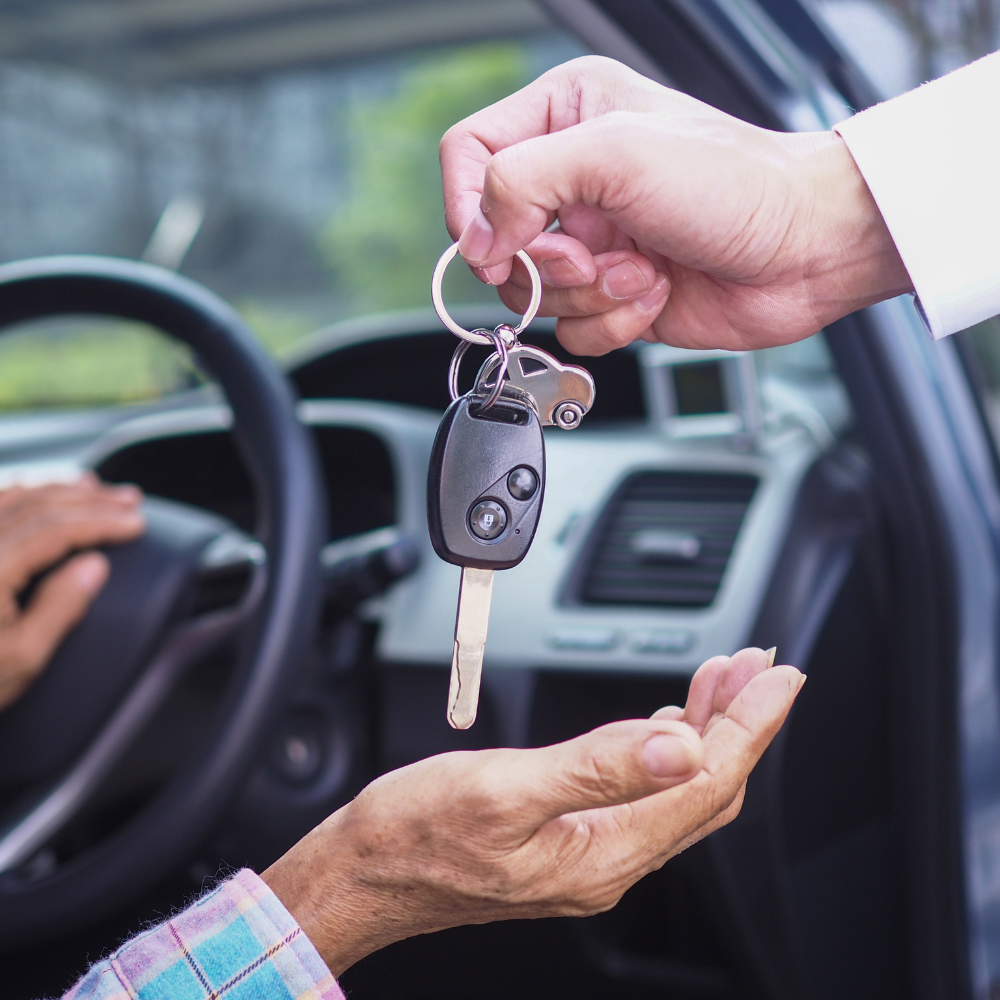Navigating Your First Car Purchase in New Zealand: A Comprehensive Guide
January 17, 2025 at 1:03 PM
Purchasing your first car is a significant milestone, symbolising independence and mobility. However, the process can be daunting, especially in New Zealand's unique automotive market. This guide aims to simplify the journey, offering insights and tips tailored to first-time Kiwi car buyers.
1. Establish Your Budget
Before diving into car listings, it's crucial to determine a realistic budget. Consider both the upfront costs and ongoing expenses:
Upfront Costs
- Purchase Price: Decide on the maximum amount you're willing to spend.
- Registration and Licensing: Initial fees to make the car road-legal.
- Pre-Purchase Inspection: Investing in a professional check can save future repair costs.
Ongoing Expenses
- Fuel: Estimate based on the car's fuel efficiency and your expected usage.
- Insurance: Costs vary depending on coverage level and driver profile.
- Maintenance and Repairs: Regular servicing to keep the car in good condition.
- Warrant of Fitness (WoF): Mandatory inspections to ensure roadworthiness.
It's advisable to use budgeting tools or consult financial advisors to ensure your car expenses align with your financial situation.
2. Define Your Needs
Identify what you require from a vehicle:
Usage
- City Driving: Compact cars are easier to maneuver and park.
- Long-Distance Travel: Consider comfort and fuel efficiency.
Capacity
- Passengers: Ensure sufficient seating for family or friends.
- Cargo Space: Necessary for transporting goods or equipment.
Terrain
- Urban Areas: Standard vehicles suffice.
- Rural or Off-Road: SUVs or 4WDs may be more appropriate.
3. New vs. Used Vehicles
Decide between purchasing a new or used car:
New Cars
- Advantages: Latest technology, warranties, and no prior wear.
- Disadvantages: Higher purchase price and depreciation.
Used Cars
- Advantages: More affordable and slower depreciation.
- Disadvantages: Potential for hidden issues; limited or no warranty.
In New Zealand, the used car market is robust, offering a variety of options for first-time buyers.

4. Research and Shortlist
With your budget and needs in mind, research suitable models:
- Safety Ratings: Refer to the Australasian New Car Assessment Program (ANCAP) for safety evaluations.
- Fuel Efficiency: Check manufacturer specifications and user reviews.
- Reliability: Look for models known for durability and low maintenance costs.
- Resale Value: Some brands retain value better, which is beneficial if you plan to sell in the future.
5. Vehicle History and Inspection
For used cars, ensure due diligence:
- Vehicle History Report: Services like MotorWeb provide details on ownership, outstanding finance, and any reported accidents.
- Pre-Purchase Inspection: Engage professionals, such as the AA, to conduct a thorough check.

6. Understanding Legal Requirements
Ensure compliance with New Zealand regulations:
- Ownership Transfer: Complete the necessary forms through the NZ Transport Agency (NZTA).
- Registration (Rego): Ensure the vehicle is registered and the rego is up to date.
- Warrant of Fitness (WoF): Mandatory regular inspections to confirm the vehicle's roadworthiness.
7. Financing Options
If not purchasing outright, consider financing:
- Bank Loans: Often offer competitive interest rates.
- Dealer Financing: Convenient but compare rates and terms.
- Credit Unions: May provide favourable terms for members.
8. Insurance
Protect your investment with appropriate insurance:
Types of Coverage
- Third-Party: Covers damage to others' property.
- Third-Party, Fire, and Theft: Adds coverage for specific incidents.
- Comprehensive: Covers a wide range of potential damages.
Factors Influencing Premiums
- Driver's Age and Experience: Younger or inexperienced drivers may face higher premiums.
- Vehicle Type: High-performance cars may attract higher premiums.
- Intended Use: Commercial use can affect insurance costs.

9. Test Driving
Before finalizing, test drive the vehicle:
- Comfort: Assess seating, visibility, and ergonomics.
- Performance: Evaluate acceleration, braking, and handling.
- Functionality: Check all features, including lights, indicators, and infotainment systems.
10. Negotiation and Purchase
When satisfied, proceed to negotiate:
- Price Negotiation: Research market values to ensure a fair deal.
- Additional Costs: Be aware of on-road costs, such as registration and delivery fees.
- Documentation: Ensure all paperwork is completed accurately, including the sale and purchase agreement.
11. Post-Purchase Considerations
After acquiring your vehicle:
- Regular Maintenance: Adhere to the manufacturer's service schedule.
- Stay Informed: Keep abreast of any recalls or safety notices related to your vehicle.
- Drive Safely: Consider advanced driving courses to enhance your skills and confidence on the road.
Conclusion
Purchasing your first car in New Zealand is a journey that requires careful planning and informed decisions. By following this comprehensive guide, you can navigate the process with confidence, ensuring that your investment meets your needs and provides reliable transportation for years to come.
FAQs
1. Can I take the Street Talk course even if I'm already on a Full licence?
Yes — although most commonly used by Learner and Restricted licence drivers, any licence‐holder can enrol. It’s still valuable for refreshing hazard perception and decision-making skills.
2. How soon after completing the course can I apply to reduce my Restricted licence period?
Once you’ve finished the required sessions and obtained the course certificate, you can submit it to Waka Kotahi (NZTA) or at your vehicle testing agency to apply for the reduced timeframe. The reduction is 6 months for under-25s and 3 months for over-25s.
3. What kind of driving situations or weather conditions does the course help with?
The course covers recognising and responding to hazards both in normal driving and challenging contexts (such as poor weather, unexpected behaviour of other road users, or unfamiliar roads). It equips you to make safer decisions across different conditions.
4. Are there any vehicle or minimum driving-experience requirements to take the Street Talk course?
While the theory sessions don’t require specialist vehicles, the practical on-road session is typically done in your own road-legal vehicle. For Learner licence holders, having some driving experience is recommended.
5. Will completing the course help with my insurance or deal with demerit points?
Yes, many insurance companies recognise that the Street Talk course enhances driver safety and may offer discounts. In some cases the certificate also supports better outcomes when dealing with traffic infringement matters.
Sources:
https://www.newzealand.com/us/feature/buying-a-car-in-new-zealand/
https://driversed.com/trending/buying-your-first-car-a-guide-for-teens-and-everyone-else
https://www.aa.co.nz/membership/aa-directions/driver/buying-your-first-car-101/



 BOOK NOW
BOOK NOW
